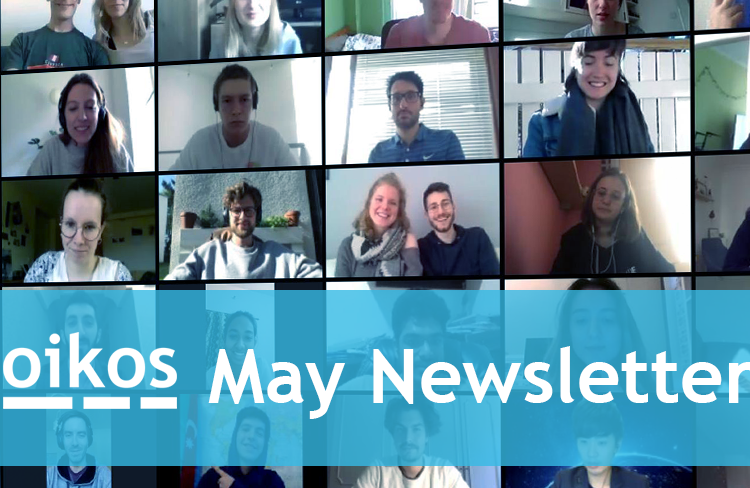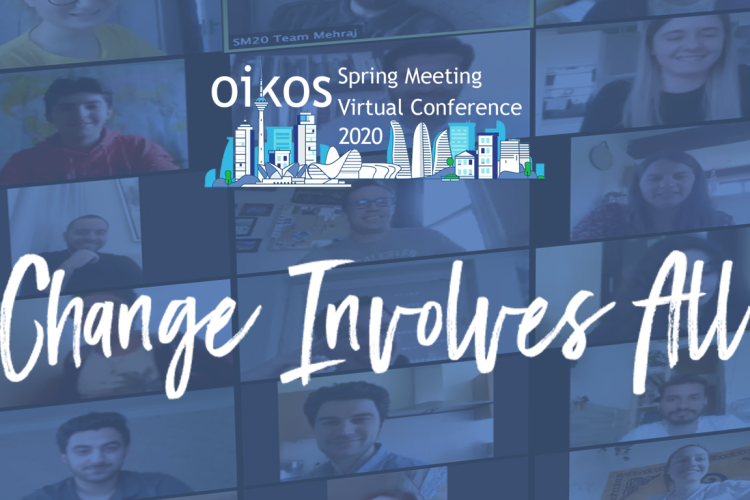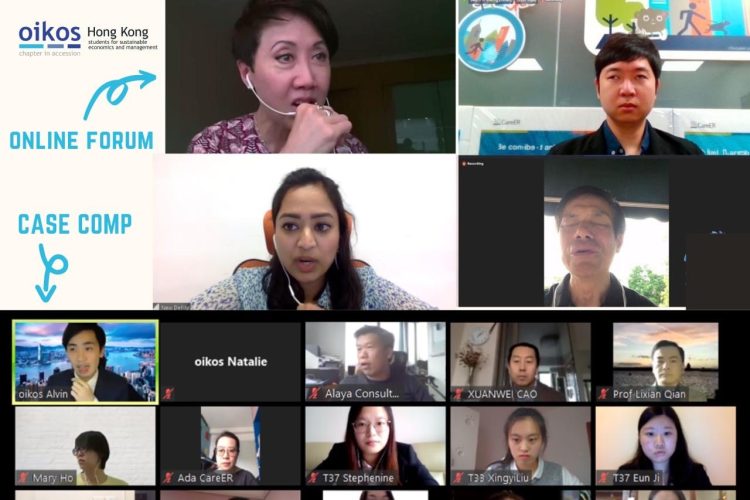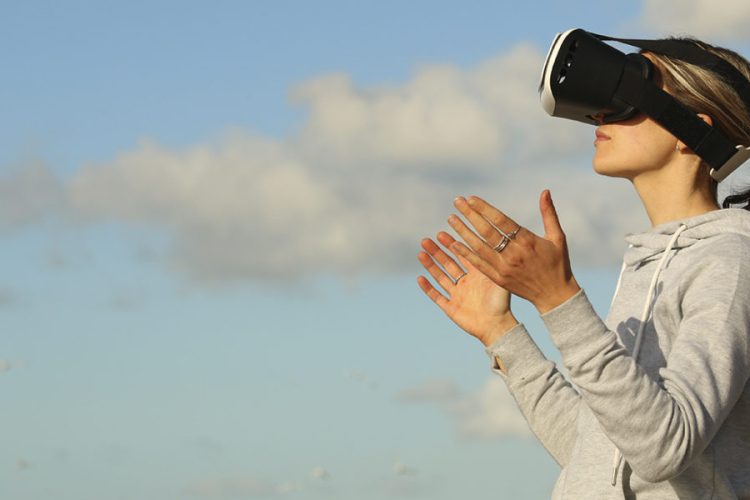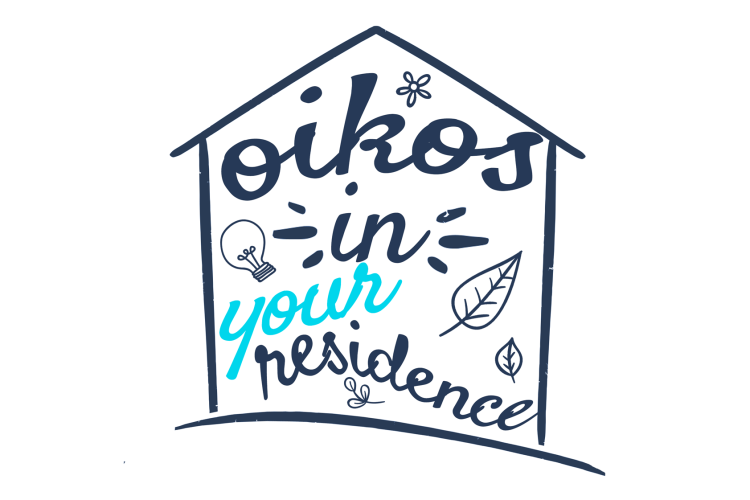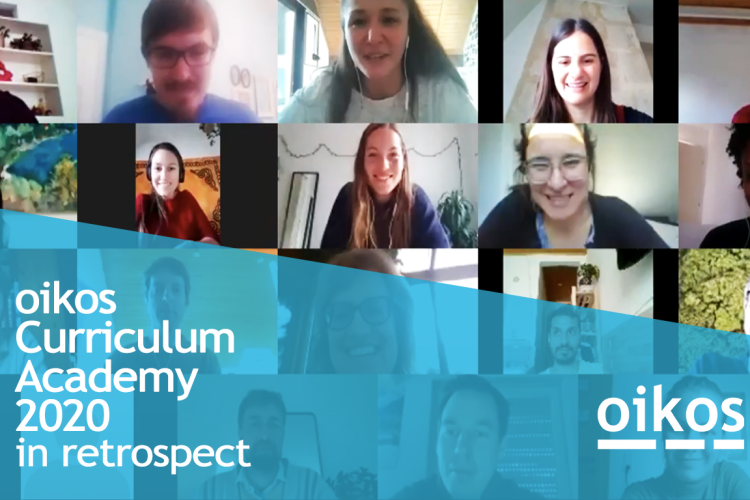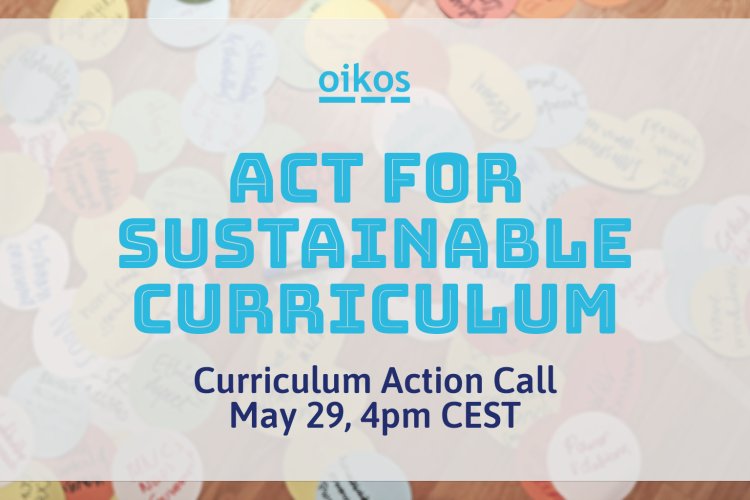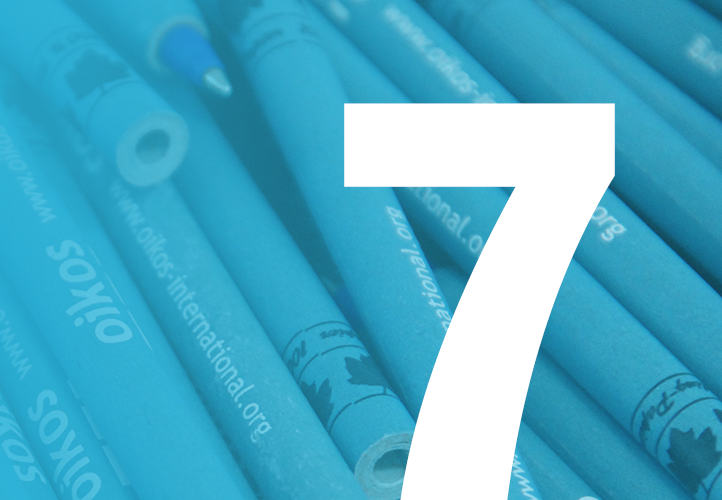In February 2020 oikos International took part at the Integrating Sustainability into Business Education panel represented by Clementine Robert, the President of oikos International. Business School leaders from across...
Welcome to the May edition of our newsletter! This month was like no other before and really showed the strength and determination of our community. The past month has been...
Spring meeting 2020 took place in April this year. The oikos Baku team had a difficult task on their hands to make a big shift from onsite to online...
The oikos Hong Kong x oikos Suzhou Sustainability Impact Case Competition 2020 was successfully organized in April of 2020. Amidst the Covid-19 global pandemic, more than 160 participants from...
From psychotherapy to education, Virtual Reality has became a tool applied in many fields. In fact, this technology provides the opportunity to embody, live, and understand existent realities and possible futures....
This summer the oikos in Residence will be taking place in YOUR residence, with all events held online. So to make plans we want to hear a little about...
The second oikos Curriculum Change Academy was jointly organized by oikos Lausanne and the oikos international Curriculum Change Initiative team from April 3 to 5 2020. Due to the...
The LEAP Advanced Participants will have their last webinar on 28th of May. We are pleased to welcome Jennifer Garvey Berger from Cultivating Leadership. She will talk about Unlocking...
Join us for the Curriculum Action Call on Friday, May 29 from 4 – 5:30 pm CEST time. Just click on the Zoom link: https://us02web.zoom.us/j/83381467353 The Curriculum Action Calls...
Friday May 15 is the deadline for Cases submission for Case Writing Competition 2020. [simple-button href=”https://oikos-international.org/programs/cases-program/” color=”lighterblue”]Learn more[/simple-button]
- 1
- 2



